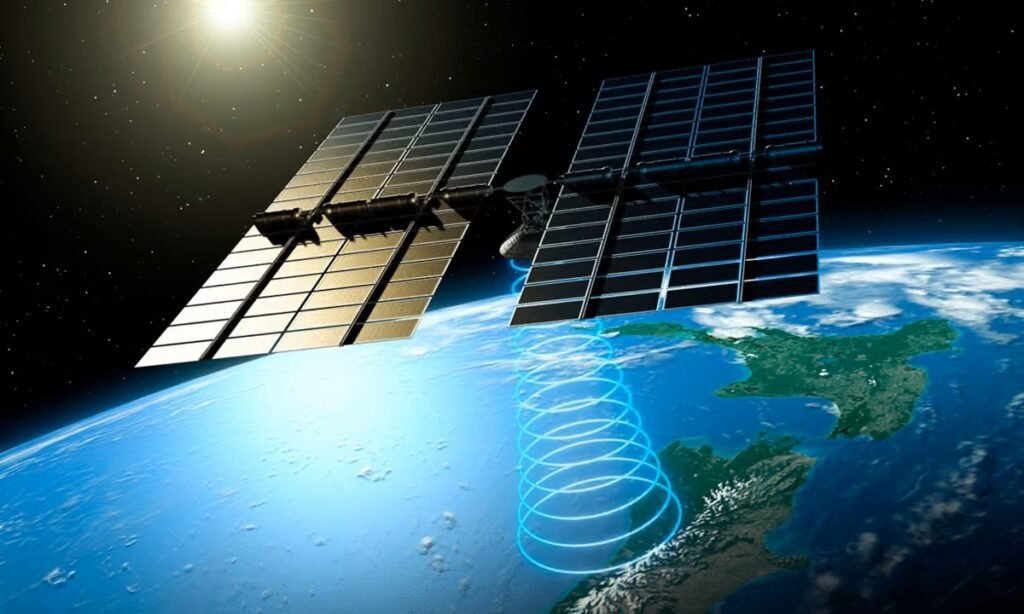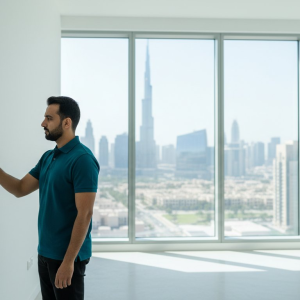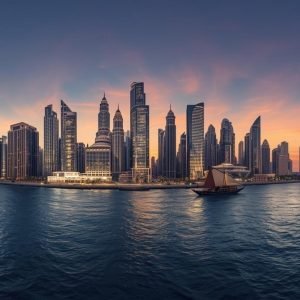Dubai is once again positioning itself at the forefront of futuristic technologies with its latest focus on space-based solar power (SBSP). The Dubai Future Foundation (DFF) has released a comprehensive report highlighting SBSP as a potentially transformative energy solution that could meet rising global electricity demands.
As the world braces for an increase in energy needs, with global electricity consumption projected to triple to 70,000 terawatt-hours (TWh) annually by 2050, SBSP could play a crucial role in bridging the gap. Experts see the market potential for this technology reaching a staggering $2 trillion over the next few decades.
What is Space-Based Solar Power?
Space-based solar power involves collecting solar energy in space using satellites and transmitting it to Earth through wireless technology such as microwaves or laser beams. Unlike traditional solar power, SBSP is not affected by weather conditions, night cycles, or geographical limitations. This means it can provide constant, uninterrupted energy throughout the day, offering a reliable alternative to conventional energy sources.

The DFF report emphasizes that SBSP could help address critical challenges in the global energy sector, including energy security, the transition to clean energy, and reducing reliance on fossil fuels.
Why Dubai is Investing in SBSP
Dubai has long been a hub for innovation, futuristic projects, and renewable energy. The city has invested heavily in solar parks, smart city initiatives, and space exploration programs. By exploring SBSP, Dubai is taking its ambition one step further, aiming to become a global leader in next-generation energy technologies.

Officials believe that SBSP aligns with Dubai’s long-term sustainability goals. The technology could help meet increasing domestic and regional energy demands while supporting global efforts to reduce carbon emissions.
Global Energy Demand is Soaring
The need for energy is rising faster than ever. Factors such as urbanization, industrialization, population growth, and technological expansion are driving global electricity consumption to unprecedented levels. By 2050, energy demand is expected to triple, putting immense pressure on existing infrastructure and conventional energy sources.
SBSP offers a viable solution to this challenge. With the ability to generate constant energy from space, it could provide clean, reliable electricity to regions facing shortages, particularly in emerging economies.
Technological Advances Driving SBSP
Recent advances in satellite technology, wireless power transmission, and lightweight solar panels have brought SBSP closer to reality. Engineers are now able to design solar satellites that are more efficient, durable, and cost-effective than ever before.
Dubai’s interest in SBSP also reflects a broader trend in space commercialization. The combination of government investment, private sector innovation, and international partnerships is accelerating the development of space technologies that were once purely theoretical.
Economic Potential of a $2tn Market
The DFF report estimates that the SBSP market could reach $2 trillion in value over the next few decades. This includes the costs of developing, launching, and maintaining solar satellites, as well as the infrastructure needed on Earth to receive and distribute the energy.
Beyond energy production, SBSP could create significant economic opportunities in research, engineering, manufacturing, and space logistics. Dubai aims to position itself as a global hub for these emerging industries, attracting talent, investment, and partnerships from around the world.
Environmental and Social Impact
One of the most promising aspects of SBSP is its potential to reduce carbon emissions. By generating clean energy continuously, SBSP could replace or supplement fossil fuel-based power generation, reducing air pollution and contributing to climate change mitigation.
Moreover, access to reliable electricity could improve social and economic conditions in energy-poor regions. Schools, hospitals, and industries in remote areas could benefit from uninterrupted power, fostering economic growth and social development.
Challenges Ahead
Despite its potential, SBSP is not without challenges. High initial costs, technical hurdles in power transmission, satellite maintenance, and international regulatory issues are among the obstacles that need to be addressed.
However, Dubai’s proactive approach, combining government backing with private sector innovation, may help overcome these barriers. By investing in research, testing, and pilot projects, the city aims to turn SBSP from a futuristic concept into a tangible, scalable solution.
Dubai’s Vision for the Future
Dubai’s pursuit of SBSP reflects its broader vision of becoming a global leader in innovation and sustainable development. The city has consistently demonstrated its ability to execute large-scale projects with global impact, from futuristic architecture to renewable energy initiatives.
By championing space-based solar power, Dubai is not only addressing future energy needs but also creating opportunities for economic growth, technological advancement, and international collaboration.
The DFF report concludes that SBSP has the potential to reshape the energy landscape, offering a solution that is cleaner, more reliable, and economically viable. For Dubai, this represents a chance to lead the world in the next frontier of energy innovation.
Conclusion
Space-based solar power is no longer a distant dream. With rising global energy demand and the urgent need for sustainable solutions, SBSP could emerge as a game-changing technology. Dubai’s leadership in this field highlights the city’s commitment to innovation, sustainability, and global collaboration.
As the $2 trillion market develops, it promises to transform energy generation, create economic opportunities, and contribute to a cleaner, more sustainable planet. Dubai is shining a light on a future where the power of the sun, captured from space, fuels progress on Earth.
Do follow UAE Stories on Instagram
Read Next – Leaf Tower on Al Reem Island Launches as Fully Residential Landmark












